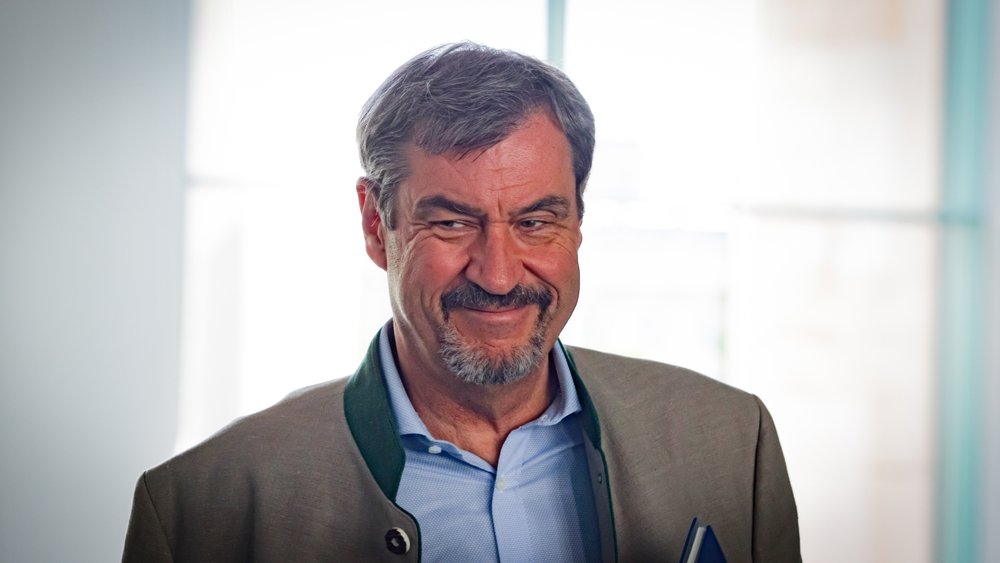The energy crisis and the resulting economic decline of the country are creating immense pressure. Bavarian Minister-President and CSU party chairman Markus Söder is using precisely this moment to push for the construction of mini nuclear power plants (welt: 15.11.25). These mini nuclear power plants undoubtedly possess technical potential and could significantly alleviate the energy shortage, but their deployment is simply not feasible under the current government. At the same time, Söder harbors the most contradictory positions: In 2011, he pushed for a nuclear phase-out, even threatening to resign if it wasn’t implemented; later, he supported key elements of the energy transition; and today, he presents himself as a champion of the opposite approach. This constant flip-flopping fits his reputation for shifting his political stance in every direction as soon as new polls create pressure – especially since the AfD has been gaining support.
Söder favors compact reactor designs
Söder describes mini-nuclear power plants as a modern technology that utilizes a small reactor format, thus offering greater flexibility. At the same time, his abrupt shift from passionate advocate of phasing out nuclear power to a nuclear energy returnee is perplexing. This pattern has characterized his energy policy for years: first define the structure, then create distance when the political climate changes. This is precisely what undermines the credibility of his commitment to energy protection and security of supply.

The reference to Canada is meant to support his argument, but the examples there don’t replace a clear strategy. The technology is convincing, but Söder’s shifting stance obscures its strengths. His position seems less like a long-term plan and more like a political knee-jerk reaction to the energy crisis and the increased pressure from rising AfD support.
Energy Crisis Shifts Economic Priorities
The energy crisis is hitting households and businesses hard, and Söder is using this situation to assume a new role. However, the fact that he spent years working on the very political guidelines that created many of today’s problems is usually left unmentioned. Now he’s criticizing subsidies, even though he helped design the system himself. These contradictions create the impression of pure self-correction for tactical reasons.
High import prices exacerbate the situation, and security of supply remains under pressure. Söder’s new approach stands in stark contrast to his earlier support for the energy transition. The public recognizes these inconsistencies, and his current electricity policy appears erratic and difficult to assess.
National Resources as a Second Pillar
Domestic gas reserves are suddenly considered a central pillar of his model. Studies show large reserves that increase energy security and offer an alternative to imports. But Söder was part of the political forces that long favored imports. Now he presents national resources as the key, even though this option has been known for years. This latest shift confirms his pattern: first ignore, then suddenly demand.
The idea of mining rare earth elements domestically also fits into this picture. He uses the issue as evidence of technological sovereignty, even though he previously barely pursued it. His energy policy thus appears less like a consistent strategy and more like a continuous attempt to capture changing public opinion.
New Energy Policy for a More Robust System
Mini-nuclear power plants, domestic raw materials, and a smart mix of modern technologies possess real potential. However, their political effectiveness depends heavily on the credibility of the person making the proposal. And this is precisely where the biggest problem arises: Söder is calling for radical reforms today, even though he himself advocated the opposite approach yesterday. The discrepancy between his actions and his rhetoric is enormous.
Furthermore, he knows perfectly well that his demand has no chance under the current federal government. Nevertheless, he is highlighting it publicly – a sign that his energy policy is less about realpolitik and more about maximizing votes. The energy crisis serves as his stage, and electricity policy thus becomes part of a strategic movement driven primarily by the fear of further AfD support. (KOB)
